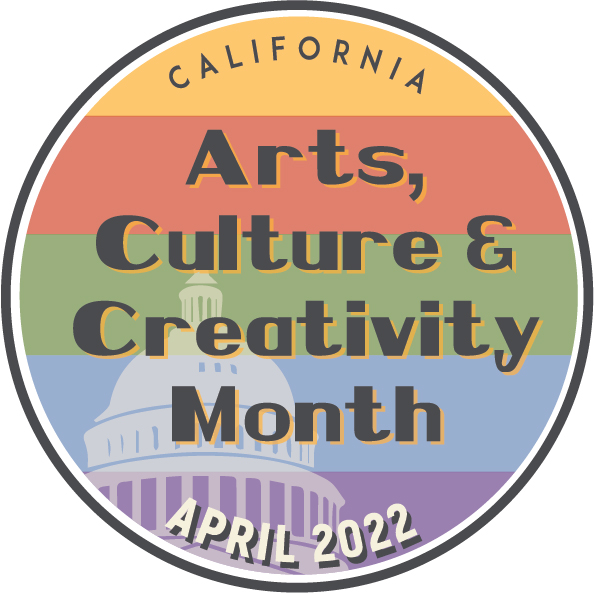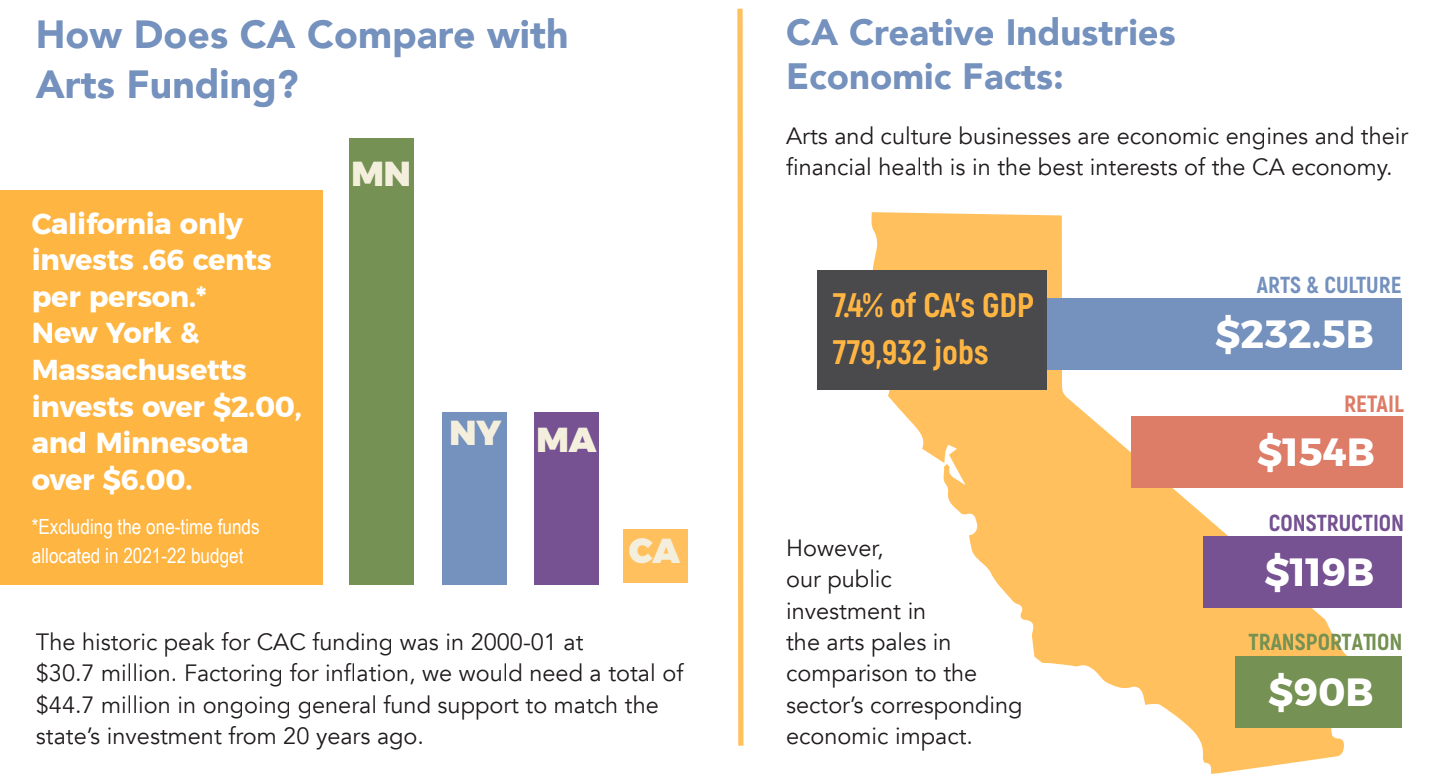If We Do One Thing During ACCM 2022, Let's Ask for $1 for the Arts
 By Sarah Weber, ACSO Executive Director
By Sarah Weber, ACSO Executive Director
Do you know that April was officially recognized by the California State Senate as Arts, Culture, and Creativity Month (ACCM) in 2019? Yes, we who work in orchestras and the performing arts can take the month of April to be extra loud and proud about how much our work matters to the diverse identities and well-being of our state and to share the heroic efforts we have gone to over the past few years (and are still going through) to keep making music as an act of service for and collaboration with our communities.
ACSO is a proud sponsor of ACCM 2022 and our friends at Californians for the Arts (CFTA) are directing this annual month-long spotlight on the arts to raise visibility and awareness about the value of our sector, to empower arts advocates to take action, and to spur greater investments in our industry and workforce. CFTA has created a whole menu of activities around this year’s theme, “The Arts Work,” providing weekly opportunities to explore and establish the five sub-themes of 1) how the arts work to heal, 2) to build community, 3) to advance justice, 4) to empower youth, and 5) to create jobs.
One of the great new elements of ACCM 2022 is The Arts Work: Showcase, which invites artists and organizations of all disciplines to submit their work digitally as examples of the five sub-themes to a gallery on the CFTA website. This new program intends to uplift creative workers and honor their work with weekly drawings for a cash prize. Individual musicians and orchestras can participate. The submission deadline is coming up fast - March 31! For more information on what you can share in the online gallery and how to participate visit here.
And check out all the other ways you can get involved in ACCM 2022 here.
One of ACSO's founding principles back in 1969 was to be an arts advocate and to galvanize our orchestra members to urge a greater investment of public funds into the arts. That goal remains paramount. We saw a swift and impressive investment in the arts on federal, state, and local levels through relief funding during the pandemic because we all came together as advocates to convey the message that the arts are vital as an employer, an economic driver, a community builder, and an engine to advance social justice. We know that the means and the will to invest in the arts are there if we keep making our collective voices heard. But we want to see this kind of public investment and support from our elected officials and community stakeholders all the time, not just when we are in crisis.
That is why is is so important that California Arts Advocates (CAA) is asking the Legislature for an increase in the 2022-23 budget in general fund support for the California Arts Council (CAC) from $26 million to $40 million, or $1 per capita per person over three years at a cost of $14 million per year for a total of $42 million. And it is also important that we do our part to help make the case that this funding is critical. As the graphic below shows, the arts industry is responsible for a bigger share of California's GDP than retail, construction, and transportation. Yet, according to the National Assembly of State Arts Agencies, California ranked only 21 out of 50 states in per capita state arts funding for the 2020-21 fiscal year.
 Image taken from CAA 2022-23 Budget Proposed Arts Investments Document
Image taken from CAA 2022-23 Budget Proposed Arts Investments Document
In the 2021 CAC grant cycle, roughly 58% of grant applicants were denied due to a lack of funding. ACSO heard from many orchestras that often received CAC grants in the past, but did not in 2021. They expressed shock and concern that in a year where they had never been more vulnerable, they weren't eligible for taxpayer support through the CAC even though they have been strong economic generators and cultural anchors in diverse communities throughout the state. It was particularly troubling because the CAC received a historic investment of $140 million from the state in the 2021-22 budget.
CAC grants are consistently oversubscribed, indicating a clear need for increased investment in the agency. We want the CAC to be able to equitably distribute funding to historically disinvested-in communities and also fund arts organizations of all budget sizes that have long relied on public support from the state, like many of our orchestra members. We don't want it to be an either/or proposition. Public funding is critical to equitable access to the arts for every county in California. We need the state to make a bigger investment in the arts overall so that through our state agency, all types of art and sizes of arts organizations can flourish here.
So if you do one thing for ACCM 2022, contact your legislators and ask them to support California Arts Advocates' legislative ask for an increase in the California Arts Council's Baseline Funding in the 2022-23 budget from $26 million to $40 million. Or more simply put: $1 per capita per Californian. Find your legislator here.
And if you do two things for ACCM 2022, contact the California Arts Council leadership and tell them how a CAC grant has been vital to your orchestra's success and ask them to consider eligibility requirements for the 2023 grant cycle to include general operating grants for organizations of any budget size. You can also attend a CAC Council Meeting and go on record with a a public comment. The next meeting is Thursday, May 12. See the full schedule here.
I got my start in arts and culture working in museum education and public programming. At one museum early in my career, the chief development officer told me, "Everyone is a fundraiser." As someone who only wanted to work with students and families and never have to ask for money, I initially recoiled at that thought...until I had to start writing my own grants to fund school programs. I then realized what he meant. All our work is interconnected, no matter your job title.
The same holds true for advocacy. Over the past few years, I've often found myself saying to ACSO members, "If you work in the arts, you're an arts advocate." Just by the nature of being arts workers, we must always speak to our worth and the value of what we do, always strive to be more inclusive and equitable to reach more people, and always be prepared to ask elected officials, policymakers, and our communities to invest in us.

